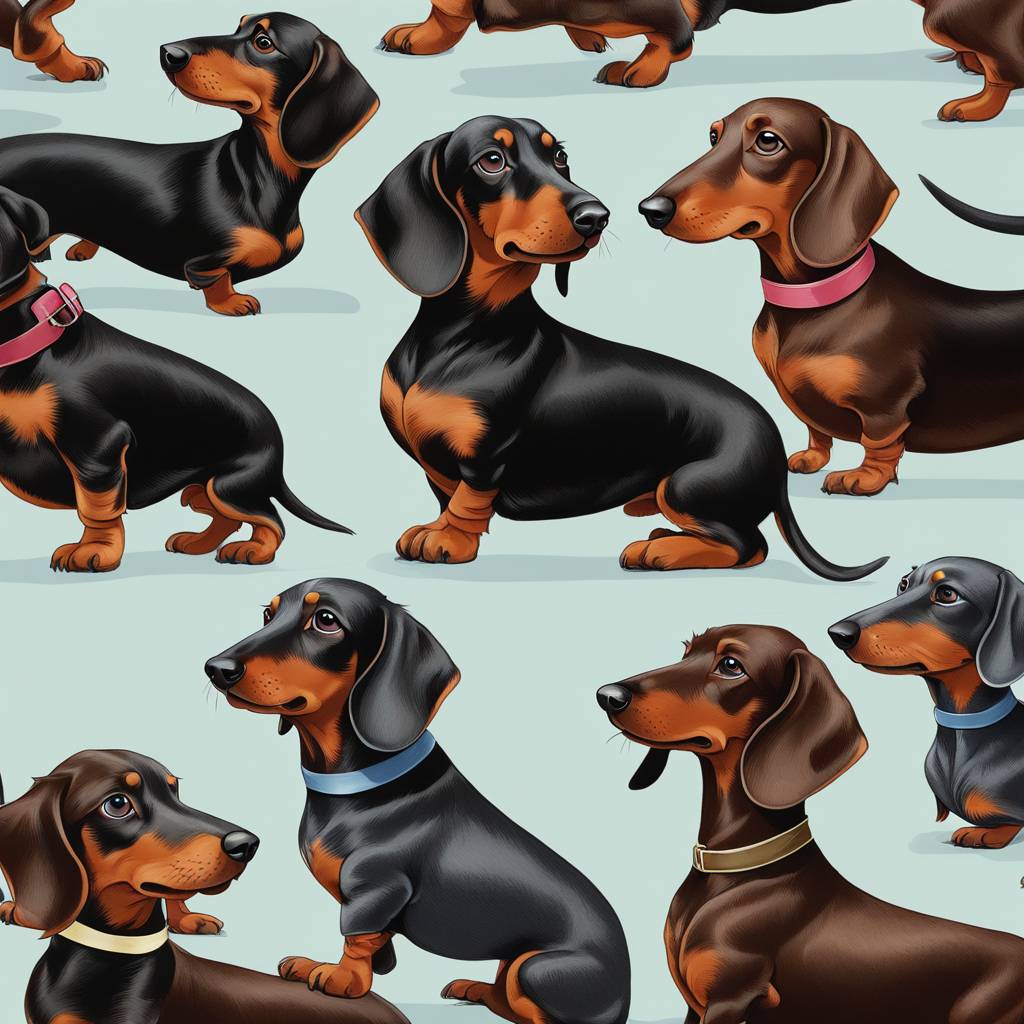Germany’s national kennel club has raised concerns about a proposed draft law that could endanger the beloved dachshund, as well as other breeds prone to skeletal anomalies. The draft bill, part of the Animal Protection Act, aims to prohibit the breeding of dogs with specific health issues related to their physical characteristics. Famous figures such as Napoleon Bonaparte, Kaiser Wilhelm II, and Pablo Picasso have all been known to love the dachshund.
The German Kennel Club (VDH) has launched a petition to save “our favorite dogs” from the potential impact of the reforms. With over 15,000 signatures already, the club argues that the proposed changes could have a detrimental effect on healthy dog breeds in Germany. Concerns have been raised by dachshund breeders like Kerstin Schwartz, who believe that the reform is unjust and could greatly affect their breeding practices.
Marion Michelet, chairwoman of the Deutscher Teckelklub Berlin-Brandenburg kennel club, emphasized the cultural significance of the dachshund in Germany and disagreed with the characterization of the breed as a product of “torture breeding.” The VDH website highlights the potential risks of the new regulations, citing concerns over genetic defects and the future viability of certain dog breeds. The agriculture ministry has clarified that the intention behind the draft bill is to prevent breeding practices that cause long-term harm to animals.
The proposed reforms have sparked controversy among dog breeders and enthusiasts, with the dachshund community particularly concerned about the potential impact. While the agricultural ministry has denied intentions to ban specific breeds, the focus remains on promoting animal welfare and preventing unnecessary suffering among dogs. Discussions are ongoing regarding the specifics of the new regulations, with a careful consideration of the implications for breeders like Kerstin Schwartz.
Despite the concerns raised by dachshund breeders and supporters, the German government maintains that the reforms are necessary to address issues related to breeding practices that compromise animal welfare. While the dachshund’s iconic status in German culture is undisputed, the proposed changes aim to prioritize the health and well-being of all dog breeds in the country. As the debate continues, stakeholders on all sides are working to find a balance between tradition and modern standards in canine breeding practices.








